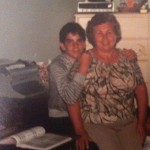 Crowds wear me out. As do conventions and even large meetings. At first, I thought I was an introvert but that didn’t always make sense because I like people and I like conventions. But they tired me out and so I searched for coping strategies. How could I even enjoy myself, let alone talk to anyone, especially agents and publishers, if I wasn’t on my game?
Crowds wear me out. As do conventions and even large meetings. At first, I thought I was an introvert but that didn’t always make sense because I like people and I like conventions. But they tired me out and so I searched for coping strategies. How could I even enjoy myself, let alone talk to anyone, especially agents and publishers, if I wasn’t on my game?
I embarked on a journey to find the perfect wardrobe- inside and out. Outside was easy – some interesting jewelry, clothes with a unique flare. Inside I needed to know if I was an introvert trying to maneuver in an extrovert world. Despite doing the research and planning for events, I found I still wore out easily and I began to suspect that it may not be about whether I was an introvert or an extrovert. How could it be? I’ve spoken in front of hundreds of people, given workshops and have been a guest speaker only to now find myself dreading crowds. I was getting tired everywhere, all the time – at meetings, critique groups, writing retreats and workshops. What was going on?
Chronic Fatigue Syndrome (CFS) – that was the diagnosis. It crept slowly into my life stretching like a shadow on a lazy summer day, creeping until it melded with the dusk. It eroded my energy, my confidence and my ability to fully participate in events and conferences. Worse yet, it decreased my productivity because I tired easily. My greatest fear now wasn’t what color I should wear, it was about whether I’d have enough energy to maintain a productive and fulfilling writing life.
There is no known cause and there is no cure. One of the current theories is that the mitochondria (our cells’ power plants) aren’t functioning optimally. I’ve learned coping strategies to manage the symptoms and to reduce ‘flare ups’. Writing goals have been adjusted and are being met. I’ve learned to limit activities and to be more strategic about interactions. I’m managing it so it doesn’t manage me. It’s not perfect and I do suffer from over-exertion but I sometimes choose to do things knowing there will be consequences.
When it comes to my writing life now, to being at conferences or at workshops, I know what I need to do to function. Part of it is understanding that over stimulation is tiring, that there is only so much I can do and participate in and then I must rest. It’s manageable and if I’m careful with my energy, I can be as productive and outgoing as I want to be. As for what color to wear? It really doesn’t matter anymore. I know my limitations and whether I wear brighter colors or quieter ones, my confidence is back because I’m in control and I can pick my moments.
My apologies to fellow CFS sufferers because I don’t mean to minimize the effects of CFS or to imply that there’s a simple solution. This blog isn’t about coping strategies, management and symptoms. It’s about letting people know that sometimes when you feel like life is overwhelming and that you don’t have enough energy to do the things you want to or to even enjoy them, sometimes it’s important to step back and take stock. Ask those questions about physical and mental health, consider if you’re taking on too much, examine expectations – take charge so you can choose the colors you want to wear on any day so you can achieve your goals in your writing life.





